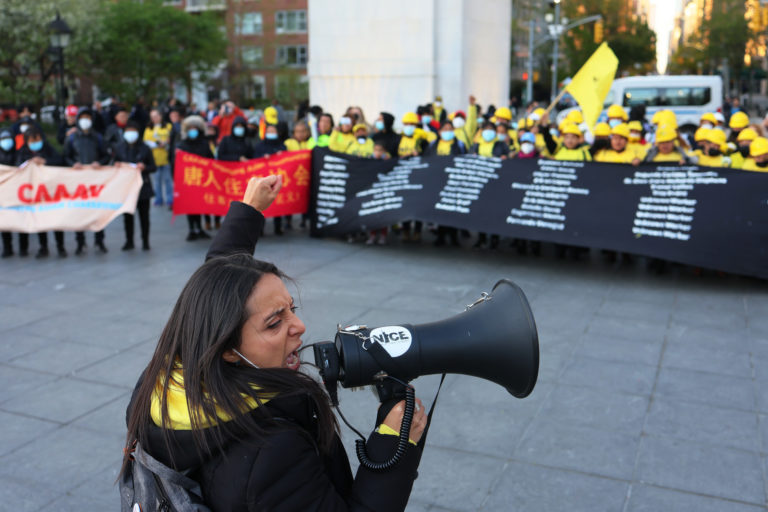Boeing workers voted Friday 51% to 49% to approve an eight-year contract extension, the New York Times reports. That deal will ensure that Boeing’s new 777x aircraft will be assembled in Washington state. Although Boeing is earning record profits, the approved deal will freeze workers’ pensions, among other concessions. Workers did manage to secure one-time payments of $5,000 and $10,000, as well as an agreement that Boeing will retain the “current six-year progression it takes for new employees to reach full pay.”
Labor groups plan to appeal a county judge’s decision limiting the effect of Seattle Tacoma’s new minimum wage law, Salon reports. The law, passed by referendum in November, increased the minimum wage in Seattle Tacoma to $15 an hour. The law would have increased wages for about 6,000 employees, but after Judge Darvas’s ruling, excluding those “doing business on property under the exclusive jurisdiction of the Port of Seattle” from coverage, the law will cover only about 2,000 workers.
The Alaska Supreme Court will hear oral arguments next week about the legality of a union referendum campaign, the Anchorage Daily News reports. The battle began last spring when the Anchorage Assembly passed a law “curtail[ing] the power of municipal unions by limiting future raises and restricting their ability to strike.” The unions sought to overturn the law by referendum, but a county clerk held they could not legally do so. The clerk’s decision was overturned by a lower court, and the City then appealed to the Supreme Court. The issue before the Court will be whether the subject of the law is too narrow and technical to be appropriate for a referendum.
The New York Times reports that President Obama urged lawmakers yesterday to restore unemployment benefits to out-of-work Americans. Speaker of the House John Boehner has indicated that he would be open to restoring benefits if the cost could be offset, but he says Democrats have not offered a plan for doing so. Other Republicans have stated that they philosophically oppose unemployment benefits because in their view, the benefits remove the incentive for the unemployed to seek work.
Federal workers will likely face another tough year, the Washington Post reports. Although the new two-year budget will bring “$60 billion in relief from across-the-board reductions imposed by the so-called sequester, . . . the government still has to operate with less annual funding than it had before those automatic cuts.” The IRS, for instance, has lost $1 billion since 2010. As a result of the decreased funding, furloughs, and pay freezes of the last several years, dissatisfaction among federal workers has increased in each of the last three years, according to the Office of Personnel Management’s (OPM) annual survey. The OPM commented, “Without a more predictable and responsible budget situation, we risk losing our most talented employees as well as hurting our ability to recruit top talent for the future.”
In international news, the Washington Post reports that Cambodian police opened fire at striking garment workers in the nation’s capital, Phnom Penh, on Friday, killing three and wounding at least two. Workers at the majority of Cambodia’s 500+ garment factories are currently on strike, seeking an increase in the minimum wage to $160 a month. The government is offering $100 a month.






Daily News & Commentary
Start your day with our roundup of the latest labor developments. See all
December 22
Worker-friendly legislation enacted in New York; UW Professor wins free speech case; Trucking company ordered to pay $23 million to Teamsters.
December 21
Argentine unions march against labor law reform; WNBA players vote to authorize a strike; and the NLRB prepares to clear its backlog.
December 19
Labor law professors file an amici curiae and the NLRB regains quorum.
December 18
New Jersey adopts disparate impact rules; Teamsters oppose railroad merger; court pauses more shutdown layoffs.
December 17
The TSA suspends a labor union representing 47,000 officers for a second time; the Trump administration seeks to recruit over 1,000 artificial intelligence experts to the federal workforce; and the New York Times reports on the tumultuous changes that U.S. labor relations has seen over the past year.
December 16
Second Circuit affirms dismissal of former collegiate athletes’ antitrust suit; UPS will invest $120 million in truck-unloading robots; Sharon Block argues there are reasons for optimism about labor’s future.